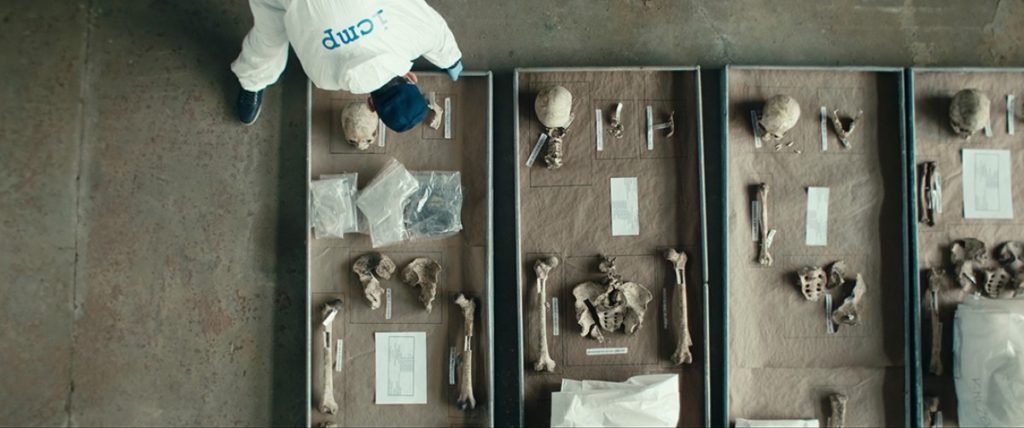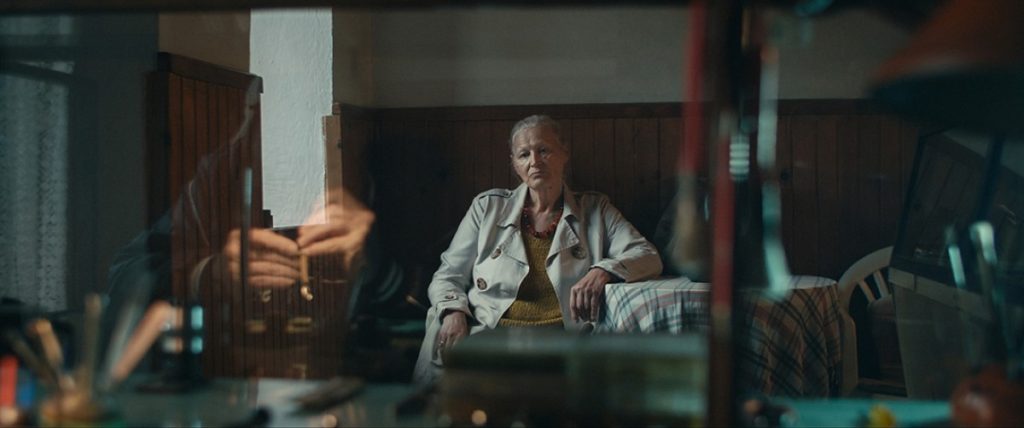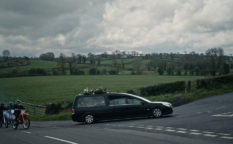The DNA of Dignity (2022) by Jan Baumgartner

Even after almost three decades, the war in former Yugoslavia still marks the life of countries that succeeded it. The newly founded national cinemas and the filmmaking world in general are not an exception: war is still the first idiom that comes to mind when most of them are mentioned. The topic was approached from different angles, usually from the point of view of the survivors and the victims, but also occasionally of the perpetrators dealing with their guilt.
For his self-produced feature-length debut documentary, the Swiss filmmaker Jan Baumgartner chooses an unusual, fresh angle: that of the anthropologists, archaeologists and forensic scientists dealing with the remains excavated from the mass graves whose task is to put the remains of the same persons together. That way, they strive to give the victims and the surviving members of their families the dignity of a proper burial, which is also highlighted in the film’s title The DNA of Dignity. Since the premiere at last year’s Locarno Critics Week, the film has been shown at a few festivals, and we caught up with it at Crossing Europe in Linz.
The problem is established straight on, in the opening narration. The mother of two informs us that she was informed by the forensics that they have found the remains of one of her sons, but they could not know which one based on the DNA that they have in their base, so she does not know which name should be put on the gravestone. Later on, we learn about the context of mass graves from the war in Bosnia, the fact that the remains have been dug up from the primary graves and put to secondary ones by the perpetrators in order to cover their tracks.
The forensic experts from ICMP (International Commission for Missing Persons) have to deal with such and other dilemmas in their work, whose portrayal in an observational fashion takes the central part of the film. Simply put, the work that those scientist do is complex, methodical and demanding, ruled by the imperative of objectivity and the intention to give some closure both for those affected and for the history as a social science. Baumgartner offers one more angle, that of the third narrator who was initially driven to find the remains of his family members, but after that he kept looking for bones in the forest near which he lives and alarming the ICMP of his findings. As the final title card informs us, 40.000 people went missing during the war in Bosnia and 70% of them were identified from the remains that were found so far.
The DNA of Dignity is not a typical documentary on the known and so far exploited topic, but a very unique and meticulous piece of cinematic work. Dignity is the goal here, and Baumgartner gives it to the victims and the topic, almost never outstepping the boundaries of it, playing the blame game or even mentioning the sides in the conflict. Shooting in wide Cinemascope format and filling the soundscape with a synth music composed by Mario Batković that is both sad and tense aims and gets the maximum of the emotional effect, while the compact format of 60 minutes is enough to inform and affect the viewers, while not taking too much of a toll on them.
However, the fact that the mother in the film is a composite character played by an actress and the choice of the two existing songs that we can hear at certain points of the film serve as a not completely subtle commentary might get certain audiences feel played a bit, but that is only the case with those in the crowd coming from a certain geographical and cultural background, while the international audiences will not even notice it. All in all, The DNA of Dignity is an honest, rock-solid and, well, dignified documentary.

Year: 2022
Runtime: 61’
Country: Switzerland
Language: Bosnian
Directed by: Jan Baumgartner
Written by: Jan Baumgartner
Cinematography: Lukas Nicolaus
Editing: Jan Baumgarter, Daniel Asadi Faezi
Sound design: Phillip Hutter
Sound: Jan Baumgartner
Produced by: Jan Baumgartner
















